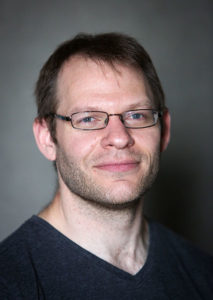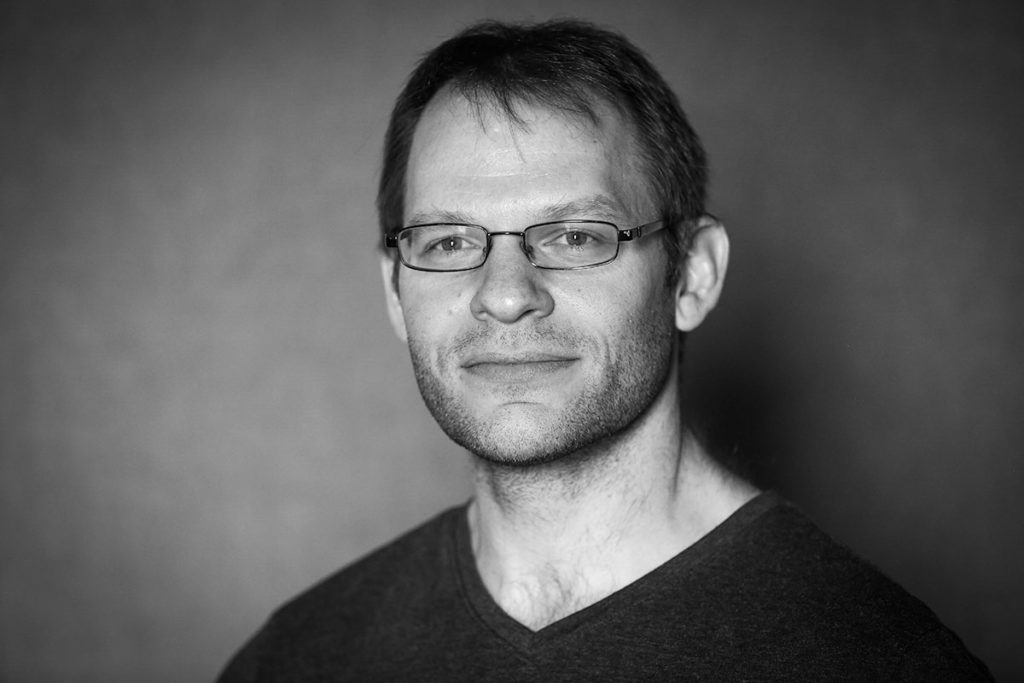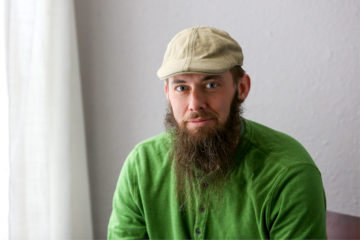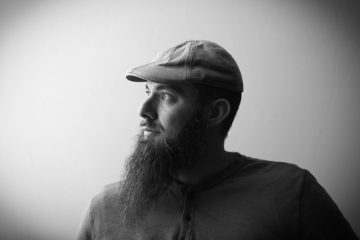Humanitou hosted a pop-up event during Arts Month as part of ArtPOP, a local-arts series supported by the Pikes Peak Arts Council and the Cultural Office of the Pikes Peak Region. Participants shared stories and were photographed during 30-minute sessions. The conversation below is one of seven in the Humanitou ArtPOP series.
Andrew Ziegler was diagnosed with type 1 diabetes when he was 10 years old. It gave him a remarkable sense of clarity, even at such an early age.
When Andrew sat with Humanitou, he shared about his experience to enlighten many of us who simply don’t understand what diabetes is and how living with it works.
He also talked about advocacy for those without privilege to gain access to … well, life. And he gave a glimpse into his poetry and its power to convey a critical message.
Meet Andrew Ziegler.
Humanitou: When you applied to be part of this Humanitou ArtPOP experience, it was clear you have a message to share. Tell me the story.
Andrew: I was diagnosed when I was 10 years old. It was around December. I went into the hospital around December 16 and I got out just a couple days before Christmas; the weirdest Christmas present I’ve ever gotten.
There’s a lot of sort of interesting little stories surrounding that time, in particular. For example, I wear contacts and glasses, and I have ever since I was, like, five or six years old. After I was diagnosed with diabetes, for about two weeks after I left the hospital, I did not need any corrective wear. I didn’t need glasses. I didn’t need contacts. I could see things really clearly.
I feel like that is one of the best metaphors or, sort of, advantages that diabetes has given me. Because in every other way, I have a lot of privilege. I am a straight, white, cisgendered male. So having this chronic illness has shown me how much our society can disregard people that it doesn’t feel like fit into the narrative of … of goodness, so to speak.
It’s that idea that I can see clearly now, even though my body has fundamentally changed, or the way that I relate to my body, rather, has fundamentally changed. That has been one of the most fascinating things of this entire experience.
Humanitou: I’d have to admit that for all the times I’ve heard the word diabetes, I still know nothing about it.
Andrew: Right. I’ve recently started a project, a blog called “A Diabetic Does Things.” Because there are a lot of people who are like, “You can’t eat that food. Diabetics can’t have sugar,” and all this other stuff. I’m not allergic to it. I just have to watch myself.
What diabetes essentially is is pretty much everyone is born with a pancreas that works. The pancreas* is a tiny little organ (behind) the stomach that produces the enzyme insulin.
Insulin allows all the cells in your body to let in sugar molecules, because sugar molecules, glucose molecules, are pretty big. They need to have insulin to help, sort of, unlock the cell doors so that sugar can go in, and the cells can then use the sugar to create energy and other stuff.
That makes sense from a, sort of, engineering perspective. If cells just took in sugar the moment they saw it, or had it come into contact with them, then you would have to be eating 24/7 in order to maintain any level of sugar, right? So insulin acts as kind of a gatekeeper.
As a type 1 diabetic, my pancreas stopped working. I no longer produce the enzyme insulin. For type 1 diabetics, we are insulin dependent. That just means, since I don’t make my own insulin, I need to have some way to get sugar into my cells, which means that I need to take in insulin that is not made by me.
It’s just nice to be reminded that I still have plenty of value, and to not be thought of as something, someone, that doesn’t have value anymore.
There’s a bunch of different ways that people do insulin. There’s a type that lasts for 24 hours and you take one big dose at the beginning of the day. There are some where you take a couple of doses that last 12 hours.
And the therapy that I’m on is called an insulin pump. It goes into my stomach region in the subcutaneous tissue, the little bit of fatty tissue that you have just underneath the skin. That’s where it’s best absorbed and used by the body.
So my insulin pump delivers a small amount of insulin throughout the entire day so that my sugars won’t rise throughout the day. Whenever I eat food, I just plug in the numbers that will have my insulin pump deliver a certain number of units of insulin so I can catch the sugars that are going to be created by that food that then go into my bloodstream.
Humanitou: How has this shaped daily life for you, beyond the broader metaphor of awareness?
Andrew: That metaphor of awareness I feel like carries through in more ways than just societally. I have to be aware of where my sugars are throughout the day. I’m lucky in that I can feel if I’m getting high on sugar or if I’m getting low on sugar. Those are two very different feelings.
When you get low, you tend to go into cold sweats or it feels a little bit like you’re getting tipsy. And things tend to feel like they’re a little bit farther away, like there’s this barrier between you and reality.
When I have high sugar, it feels like I just got done with a really tough workout. All my muscles are aching.
Most people’s bodies regulate the sugar to be between 70 and 120 milligrams per deciliter. All I have to do is to check my sugar by doing a small drop of blood pretty much before every meal, and other times throughout the day when I haven’t checked for a while.
That gives me the information of, “Do I need to eat something to bring my sugars up?” Or “Do I need to take a little bit more insulin to help bring my sugars down?”
The truth is that diabetes is really easily manageable. I mean, it takes a lot of work. A lot being relative, right? It takes more work than the normal person might be used to. And that’s okay. But it is 100 percent totally easily manageable, if I have access to the proper things.
Humanitou: You mentioned that about 20 years after being diagnosed, so about three years ago, you had a special opportunity with one of the doctors that played a role in your life. Tell me about that experience and why it’s important to you.
Andrew: About 20 years ago, right before I started my martial arts career, I went to a doctor up in Denver. That doctor, Dr. Nayak, told me that I have two types of medication: insulin to bring the sugar down and food to bring the sugar up. It was that balancing act.
Dr. Nayak told me that for him to feel comfortable putting me on a pump, he wanted me to get on an exercise regimen. I had always been interested in martial arts. I was, like, “Teenage Mutant Turtles. They do martial arts. I’m not a turtle, but I’m a teenager.” So I looked up this kung fu dojo and I started training there.
When your life is partially controlled by numbers, it can be difficult to not look at yourself like a statistic already.
From my perspective, the cool part of this story is I met another diabetic a couple of years ago who asked me to come in and do a martial arts demonstration for a diabetes camp. So a camp filled with kids who had been diagnosed with diabetes, and they were about the same age as I was.
I got to do a demonstration where I showed off a few different martial arts forms, and I showed how to break through bricks and boards. I got some volunteers from the audience to hold boards. One of the volunteers that I was able to get was the same doctor who had gotten me into martial arts in the first place.
So this was the dude who taught me how to take care of my diabetes a little bit better and gave me this metaphor of balance. And he had also gotten me into martial arts.
Twenty years later, I’m teaching him to hold a board and showing my progress. It was a moment of synchronicity and … wonderfulness.
Humanitou: Was that a planned encounter for the two of you?
Andrew: Not at all! I had no idea he was going to be there. It was not planned, but I got there and the person who had originally hooked me up with this gig asked me a question or somehow that doctor’s name came up. And she was like, “He’s here today.”
Humanitou: You clearly were feeling some emotion rise up when you were sharing that story. What is it that touches you so much, elicits that emotion, when you think of that experience?
Andrew: I don’t completely know. That someone saw value in me, I guess. That’s a really weird thing to say, but …
Humanitou: So it was when you were recalling that special moment of getting to be with that doctor, and to be able to thank him in person?
Andrew: And … this society … I have a poem about how different representatives in our Congress have said that people with preexisting conditions should be treated like burned down houses, that there’s nothing to them anymore, essentially.
So you have the two sides of the spectrum within that one moment, which is … this condition is hard, but it’s manageable, and it’s much more easily manageable when we have access to the right resources.
And there are some people who would rather deny people those resources than look at them like they’re humans … I don’t know. When your life is partially controlled by numbers, it can be difficult to not look at yourself like a statistic already.
It’s just nice to be reminded that I still have plenty of value, and to not be thought of as something, someone, that doesn’t have value anymore.
As long as I have access to the right stuff — and I think that this goes for anyone — if we had access to the right things, if people are willing to take time to help us get food or mental healthcare or to get regular healthcare …
If we have proper access to resources, then the things in our lives are manageable.
Humanitou: You and I have access to some things that many others flat have no chance of getting when they need it. These issues you’re talking about could be lessened, for sure. Instead, they’re complicated by those who are supposed to help.
Andrew: Absolutely. It is complicated. Even though I have more access to power, I don’t have as much access to power as someone who is elected and represents us, right?
 I think that it’s important for people who have the ability to speak in places where they won’t be silenced, or to exist in places where they don’t feel threatened, that we who have access to those spaces be willing to put our privilege on the line and say, this is what is morally or ethically or just plain right.
I think that it’s important for people who have the ability to speak in places where they won’t be silenced, or to exist in places where they don’t feel threatened, that we who have access to those spaces be willing to put our privilege on the line and say, this is what is morally or ethically or just plain right.
And this is why we should fight for it, because someone else who is in a position of power, they may not listen to someone who looks different than me. And that’s not fair, obviously, but they might be more willing to listen to someone who looks like me.
If I can use the skills and the things that I have learned, along with the things that I don’t control, to lobby for equal access in more than just healthcare, then I think that’s a really important thing for me to do.
I’m a poet. One of my favorite TV shows is Avatar: The Last Airbender, and I have a poem about where he talks to people of the Fire Nation after he defeats the Fire Lord.
He basically says, in my poem, “I don’t blame you for the things that happened, but if you knew these things were happening — the genocide, essentially, and all the war that happened because the Fire Nation took over — if you knew and you didn’t do anything, then all the people who died, their blood is on your hands, too.”
I think that it’s really important that we use the power that we do have in spaces that we have access to to fight and to lobby for better rights, for better access, for … a bunch of different things.



